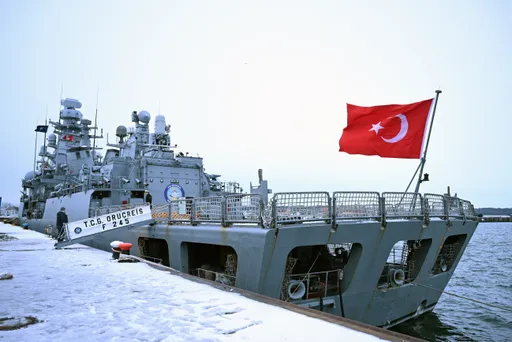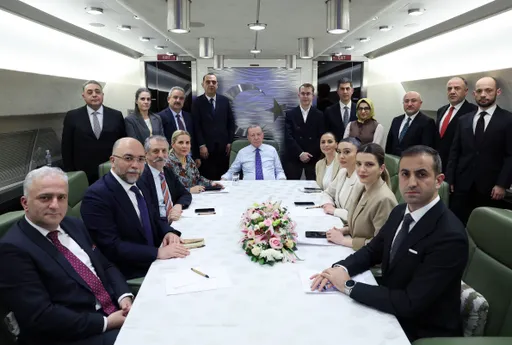Donald Trump announced the collapse of the talks with the Afghan Taliban insurgency in typical fashion: with a bombastic announcement of dubious merit on his favoured social media platform.
As he told it, he had displayed magnanimity in offering the Taliban a trip to his resort at Camp David, the site of many a historic American diplomatic closer; they, in turn, had dishonestly attempted to strengthen their position by claiming an attack at Kabul, which slew an American soldier and forced Trump, the arch-patriot, to scrap the talks.
As with everything Trump says, this is rather less than the whole truth: a summary of Afghanistan over the past year shows that not only had the Taliban continued fighting, but so had the United States and its client in Kabul.
Rather than any specific malfeasance among a sea of continued provocations on both sides, it was probably the vulnerability of Kabul’s government that prompted the United States to withdraw from a deal in which they never had real interest.
It is unfortunate that America’s political discourse is so self-absorbed, a quality that would be less objectionable were Washington not so deeply embroiled in so many countries abroad.
This same self-absorption saw even political opposition and alternative media – including such celebrity iconoclasts as Mehdi Hasan – attack Trump not for the perennial contradictions and slow-burning myopia of what is now America’s longest war.
Instead it was for the “offensive” temerity of having contemplated ending that war by inviting the “loathsome” Taliban to negotiate in the United States on the eighteenth anniversary of the September 2001 attack to which they had no link.
Such critics needn’t be concerned; the talks, notwithstanding the sincerity of their organisers, were never terribly serious.
A summary look at the record of the past year shows that both the Taliban on one side and the government, quietly but decisively backed by American airpower, on the other, continued to fight long before an American soldier had the misfortune of joining the thousands of Afghans killed.
Bolstered and supplied by the United States and its allies for nearly two decades, the Afghan government had no compunctions about admitting, in its protests against the talks, that they would put its survival in doubt. Such a humiliating admission of dependency even as Afghanistan marks its hundredth anniversary of independence against British suzerainty underscores Kabul’s vulnerability.
Rather than losing his soldier, it is probable that Trump’s mind was made up a few days earlier, when the insurgents breached three provincial capitals – Farah, Kunduz, and Pulli Khumri– at about the same time.
Strengthening position
Trump was correct that such attacks marked Taliban attempts to strengthen their position, but the argument goes both ways. No less than the Taliban attacks, the Afghan government has continued to fight and American assistance has been of paramount importance – in particular, since their original mission ended in 2014, American airpower.
Here there is a historical echo: much as the Soviet Union’s withdrawal twenty-five years earlier did not preclude a ferocious bombardment to bolster its Afghan client against the insurgency of the period, so American airpower has been decisive in shoring up the current Afghan regime.
Just as the Taliban have continued to fight on the ground even after the talks, so have the Americans continued to pound them from the air. This without counting the supporting role of mercenaries such as the twenty-thousand troops of Trump’s friend Erik Prince, whose role, being private soldiers, remains shrouded in secret.
It has additionally been suggested that the Taliban are split: that their negotiators abroad have little connection and thus control with field commanders on the ground.
This again is very questionable; while such splits have often occurred in insurgent groups, it has largely been offset in this case by the fact that the Taliban negotiators were mostly top-level military leaders.
They include Abdul-Ghani Baradar and the top-level Taliban prisoners released by the United States in 2014 – others – such as emirate-period military commander Fazil Mazlumyar – retained their influence in the field despite not having participated in the talks.
Even strictly diplomatic Taliban officials, such as the negotiation teams’ leader Abdul-Salam Hanafi, were only recently involved in coordinating events on the field. The diplomatic-military fissures that have often crippled insurgent groups do not appear to apply here; there appears to be overwhelming coordination between the Taliban’s field command and their representatives abroad.
The Taliban’s preferred powerplay since 2014 has been the quick takeover of provincial capitals, much like the assault that preceded Trump’s withdrawal in early September. Since 2015-16, when Taliban commander Abdul-Salam Baryalai occupied Kunduz twice in as many years, American airpower was key to stopping these powerplays; on both occasions it played the major role in evicting Abdul-Salam, killing him shortly thereafter.
Since then, the Taliban preferred to only briefly breach capitals, withdrawing after having made their point. This happened in the runup to the 2018 talks, when Farah and Ghazni’s eponymous capitals were briefly occupied, and resumed a year later to end the talks.
Again, however, escalation cuts both ways: even as the talks were underway, government forces backed by often destructive American airpower mounted repeated sweeps in the countryside, whose victims were rather less easily identified than the insurgents’ victims in Kabul.
Pitfalls of the military option
The most recent sweep coincided with the Taliban assault, when government forces ploughed into Badakhshan Province, fighting their way to the long-held Taliban base in Warduj and claiming to have killed its commander, Qari Fasihuddin.
Northwest Afghanistan has similarly been a perennial battleground, remote from the rest of Afghanistan and hence only rarely noticed abroad; one rare exception occurred in spring, when a Taliban attack captained by Maulavi Abdul-Karim drove government troops across the border into Turkmenistan.
The other method of increasing bargaining strength, assassination, has similarly been employed by both sides, with the United States again playing a key role in the government side.
Just prior to the talks, a Taliban suicide attack spectacularly wiped out the government’s southern command: militia commanders Abdul-Raziq Khan of Kandahar and Abdul-Jabbar Qahraman of Helmand, as well as the region’s respective commanders for the army and intelligence, Zalmay Wesa and Abdul-Mumin Hasankhail.
Not only were assassinations of the conventional sort attempted since – killing the Taliban’s Pakistani patriarch, preacher-cum-politician Samiul-Haq Akaurwi, and narrowly missing Taliban emir Hibatullah Akhundzada – but so were airstrikes.
In the year since, the experienced Taliban command in the region has also been eliminated by airstrike: this includes Abdul-Mannan Abdul-Rahim for Helmand, Fazalur-Rahman Mashar for Farah, and Taliban military commander Ibrahim Sadar.
Several more Taliban commanders at provincial or above level have been claimed killed with American assistance in this period, though the frequency with which claims are wrongly made – Abdul-Rahim was claimed killed some dozen times before he was finally nabbed – means these cannot be confirmed.
In short, not only has the government mirrored the Taliban attacks but the United States, ostensibly the honest negotiator to the Taliban’s tricksters, has played a key role.
The apparent insincerity with which the talks have been pursued begs the question as to why they occurred in the first place. The answer is fairly self-evident for the Taliban, whose main hurdle to power since the 1990s was their lack of international recognition.
Drawing the United States to the negotiations table could potentially undermine its support for a Kabul regime the insurgents see as foreign-installed at their expense and thus illegitimate; the point of the talks was to weaken the government, against whom the harder military option was simultaneously pursued.
For Washington the answer appears to lie in the geopolitics of its initial intervention – talk of terrorism and selectively remembered human rights aside, the war on terror gave the United States not only a foothold but the lead in a securitised Central Asian collaboration involving most regional countries.
Russian and US interests
It is worth noting that both the coalition that the United States helped to power in Afghanistan during 2001, as well as the accompanying post-Soviet dictatorships in Central Asia, were the same actors supported by Russia in the 1990s and 2000s.
Much as Russia’s 2015 campaign in Syria was calculated to displace the United States as the regional powerbroker, so the American campaign in Afghanistan had been designed to place America at the centre of the post-Soviet Central Asia.
This worked amicably for years given Russia’s similar security concerns about regional “radical Islam” – back in the days of Vladimir Putin’s bonhomie with George Bush – but the growing rift between the powers transformed their Central Asian collaboration into a competition.
It is no coincidence that Zalmay Khalilzad first proceeded to meet the Taliban only days after Russian foreign minister Sergey Lavrov set the ball rolling; it is similarly to play off this angle that the Taliban, whose enmity with Russia predates its enmity with the United States, nonetheless responded to the talks’ collapse with a trip to Moscow.
For Washington, the talks appear to have been more an exercise in limiting Russian brokerage than a sincere settlement. The most recent Taliban attacks are as good a pretext as any to put this time-buying charade to bed.























